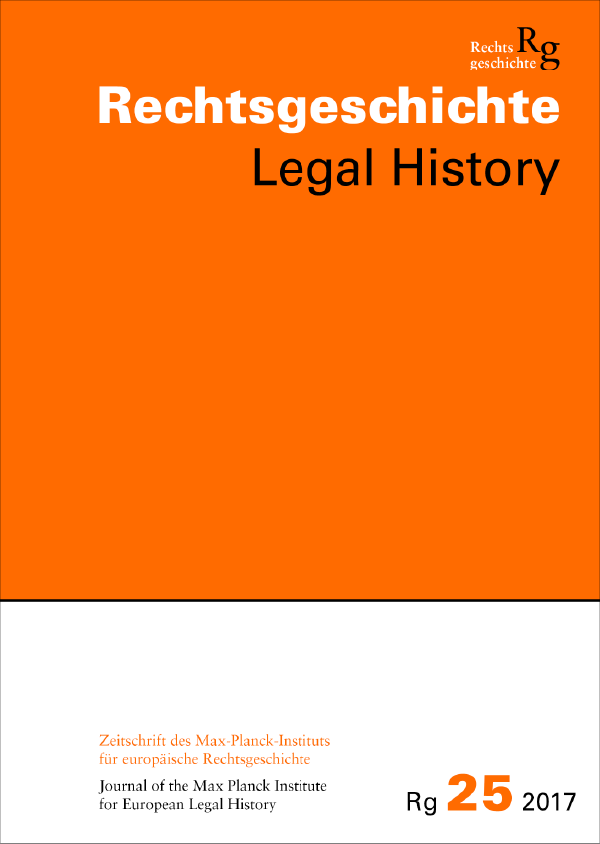Negotiating Justice and Passion in European Legal Cultures, ca. 1500–1800
DOI:
https://doi.org/10.12946/rg25/252-262Schlagworte:
justice, emotions, reconciliation, passions, enlightenmentAbstract
This article explores two interrelated facets of early modern law and emotions. It first examines the emotional dynamics of negotiated justice in early modern Europe, tackling one of the clearest characteristics of European legal culture in this period. In so doing, it underscores how the complex emotional worlds connected with justice practices that were transactional, negotiable and often explicitly based on the reproduction of society’s hierarchies and relationships through settlements and arbitration. Secondly, it moves to consider such changes in legal thought that occurred as critiques of practices of Old Regime justice. Reconsideration of the relations between emotion and law in the Enlightenment occurred as part of a twinned project of the critique of existing practices of law and speculative imaginings of the potential of legislation to influence behaviour and feelings. Innovative accounts of the relation between passions and law were the product of this reconsideration of the status quo. Laws were reconsidered as tools to channel human passions in certain directions. This article explores the place of emotions in legal change in the seventeenth and eighteenth centuries by looking both at the defining practices of early modern justice and how they were the spur for new conceptions of the relationship between legislation and the passions.
Downloads
Veröffentlicht
Zitationsvorschlag
Ausgabe
Rubrik
Lizenz
Copyright (c) 2017 Autor/in

Dieses Werk steht unter einer Creative Commons Namensnennung - Nicht-kommerziell - Keine Bearbeitung 3.0 International -Lizenz.





